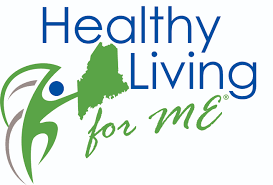5 Surprising reasons for exclusive breastfeeding

Did you know that exclusive breastfeeding can save newborn lives? Like us, infants need the proper nutrients for survival, growth, and development. They cannot, however, obtain these nutrients directly from food as they are too young to eat and digest food items. They, therefore, rely on their mothers for nourishment through breastfeeding.
Exclusive breastfeeding means feeding your baby with only breast milk ( no foods or liquids, no water, and no infant formula). The World Health Organization recommends that infants should be exclusively breastfed for six months. WHO further estimates that 220,000 infant deaths could be prevented through exclusive breastfeeding. Here are the facts:
1. Colostrum protects your baby from illness
- Colostrum is the yellow milk produced by the mammary glands at the end of pregnancy. It is packed with Immunoglobin A (antibody), white blood cells, Lactoferrin ( a protein that helps prevent infection), and an epidermal growth factor to stimulate cell growth.
- Colostrum is also rich in magnesium, thus supporting your newborn's heart and bones, and zinc and copper for immunity.
- Infants who receive their first breastmilk within the first hour of birth have a three times higher chance of surviving than those who do not.
2. Breastmilk is rich in nutrients for wholesome growth
Breastmilk has the right amounts of fat, sugar, protein, and water. These nutrients are necessary for the health and survival of your baby.
3. Ultimate protection
If a human child becomes ill, powerful medications cannot heal them. Exclusive breastfeeding protects your newborn from meningitis, stomach infections, inflammatory bowel diseases, and respiratory problems. Reports indicate that babies not breastfed have a 15-fold higher risk of dying from pneumonia than exclusively breastfed newborns. Exclusively breastfed infants are less likely to develop high blood pressure, obesity, and diabetes later in life.
4. Breastmilk is easy to digest.
Infants cannot digest solids or formula foods. Giving cow milk, formula, or soy milk before six months triggers allergic reactions and causes constipation. Exclusively breastfed infants are rarely constipated as breastmilk is easy to digest.
5. Breastfeeding supports skin-to-skin contact, which can prevent neonatal death.
Early and continuous skin-to-skin contact and kangaroo mother care significantly increase infant survival and lower morbidity. This contact calms and relaxes the infant and enables colonization of the infant's skin with the mother's friendly bacteria, thereby protecting against infection. It also regulates the baby's heart rate and breathing, enabling them to adapt to extra-uterine life.
Now that you know these benefits, I urge you to breastfeed your little one exclusively. If you are a working mother, express your milk and let your baby enjoy nutritious milk while you are away. Remember, no water, juices, cow milk, soya, or porridge. BREASTMILK IS ENOUGH food for the baby in the first six months of life. Wishing you all the best in your breastfeeding journey.







